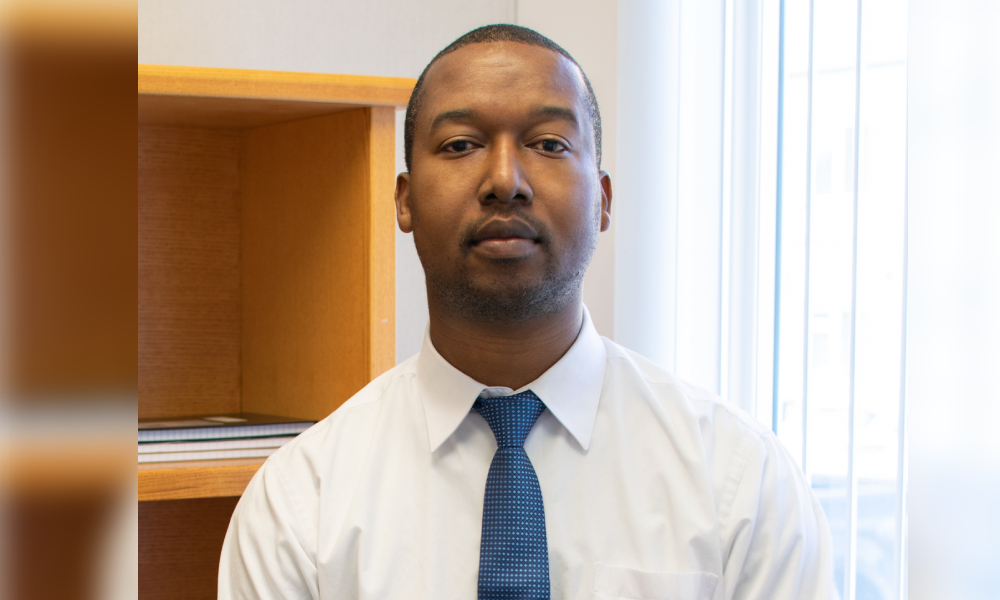Concerns on completing work during short season eased by flexibility on issues like force majeure

Dudley Maseko came to Nunavut three years ago with the expectation he “was heading into a great adventure,” while at the same time giving his career a boost by taking on a job as legal counsel for the territorial government.
“It was a different type of work, different legal issues I otherwise wouldn’t deal with,” says Maseko, who worked for the federal government in Ottawa after graduating from the University of Ottawa Law School and being called to the bar in 2016. “I thought it would be a great position, so it was an easy move for me to make.”
What Maseko didn’t count on was a global pandemic that challenged him to work with contractors and project managers to get things done during the area’s very short summer construction season, with the prospect of supplies and workers being delayed.
“Timelines are already tight,” he says. “Throw a pandemic into that mix and you get a ripe environment for contract performance issues.”
Nunavut has yet to report one case of the novel coronavirus making its way around the world, something Maseko says residents of Nunavut are grateful for. “We count our blessings, given the disproportionate impact Covid-19 would have on our communities, which have a critical shortage of housing, a high prevalence of respiratory illness and limited health infrastructure.”
Still, the potential impact of the pandemic on the territory’s economy and overall wellbeing could have been harsh if the 2020 construction season were delayed or shut down completely by lack of building materials and workers.
Maseko is part of a team of lawyers who advise all 11 departments of the Government of Nunavut and territorial corporations, acting as in-house counsel. His practice focuses on areas of corporate commercial law and privacy law, and he regularly advises the Government of Nunavut on procurement, tendering of contracts, and requests for proposals.
And it was these types of matters that gave Maseko a lot of anxiety as he tried to ensure that projects set to start or resume would proceed as soon as the sea ice thawed enough to let in ships bringing much-needed materials from the south. Nunavut is the only jurisdiction in North America that remains entirely isolated from the highway system and the North American trade corridor, and everything must be flown in or brought in by ships.
Nunavut, being such a young territory, has many important projects in progress as the economy in Canada’s Arctic continues to grow, Maseko says. These include: the building of a deep sea port and a small craft harbour in Iqaluit, taking up about 40,000 square metres, expected to be completed in 2021; and a new 112-bed correctional facility, the Qikiqtani Correctional Healing Centre, worth $74 million and set to open in 2022.
Covid-19 lockdowns and the inability to bring in supplies or workers could have had a huge impact on such projects, Maseko says, but luckily, “most, if not all” scheduled construction and major works projects went ahead, though sometimes with delays, adjustments, and accommodations.
“The general attitude of the contractors I had to deal with was that we were all going to be reasonable in working with each other. Everyone appreciated that we are in a pandemic, that we’re all new to this and we had to act collaboratively. I was pleasantly surprised because I had worried there would be many more disputes.”
In many cases, the answer was relatively simple, such as one case Maseko describes when dealing with a contractor who was concerned about paying the hotel bill of workers who had to be quarantined in Ottawa before flying to Nunavut. “We solved that problem by having the Nunavut government pick up the bill,” he says, also noting that the workers who came to work on these projects were from other parts of Canada, so there were no immigration issues.
Part of the success is getting the projects going this construction season was making sure that both he and the vendors he was working with could understand and negotiate the legal issues in the contracts that governed the projects, including concepts such as force majeure, the common law doctrine of frustration, and material adverse change.
“None of the templates for contracts the Nunavut government uses anticipated a pandemic in clauses such as force majeure or material adverse change,” Maseko says. He adds that until the pandemic, he had not advised on such clauses, so he had to “brush up on these constructs quickly” as he prepared to counsel the government on contract performance issues related to the pandemic, and work with the contractors.
Maseko says commercial contracts often contain a force majeure clause that could relieve a party from its contractual duties when performance has been prevented by a force beyond its control. The language of these clauses varies in detail and scope, and the specific language used is critical to determining the scope and applicability of force majeure clauses, which typically are construed narrowly under Canadian law.
As for clauses related to material adverse change, which can suspend or change performance obligations due under a contract once a MAC event has occurred, Maseko says: “In general, Canadian courts read a MAC clause in the context of the entire agreement and in conjunction with other evidence of the parties’ intent.”
Maseko says that when the pandemic is over, and there is time to reflect on the clauses in commercial contracts, they will have to anticipate occurrences such as pandemics in clear, unambiguous language.
“It is going to be different moving forward, now that we’ve gone through this, and we will take stock, and we will make sure that future contracts now on procurement, tenders, and request for proposals have language in place that takes pandemics into account.”









